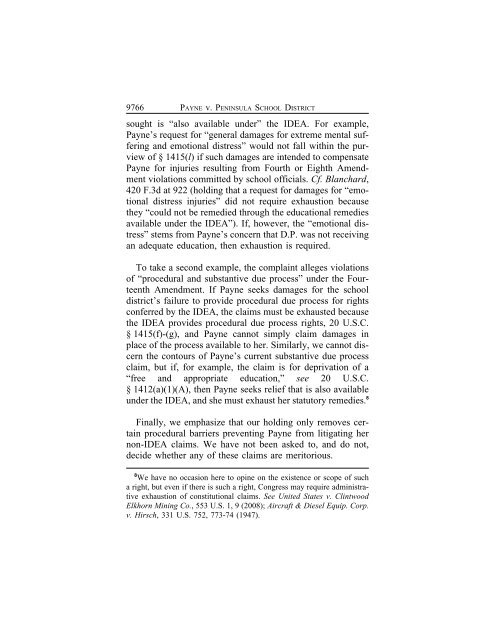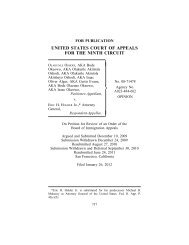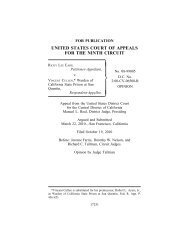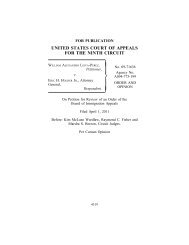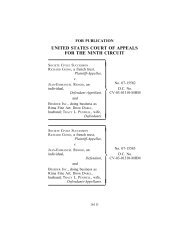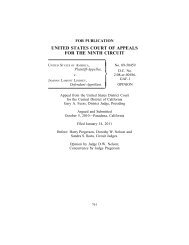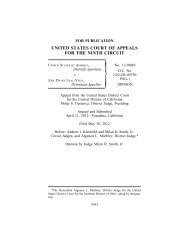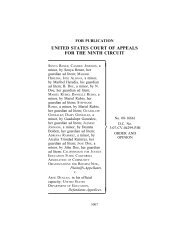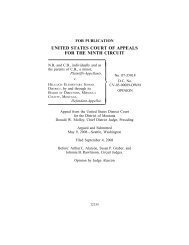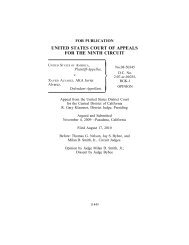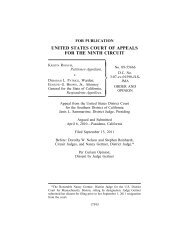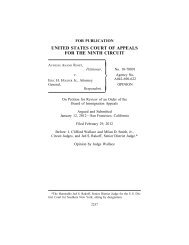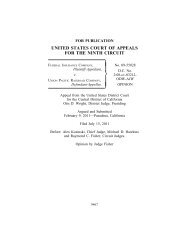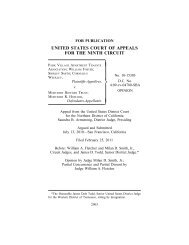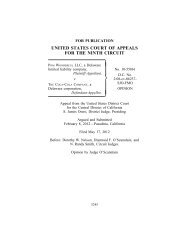UNITED STATES COURT OF APPEALS FOR THE NINTH CIRCUIT
UNITED STATES COURT OF APPEALS FOR THE NINTH CIRCUIT
UNITED STATES COURT OF APPEALS FOR THE NINTH CIRCUIT
Create successful ePaper yourself
Turn your PDF publications into a flip-book with our unique Google optimized e-Paper software.
9766 PAYNE v. PENINSULA SCHOOL DISTRICT<br />
sought is “also available under” the IDEA. For example,<br />
Payne’s request for “general damages for extreme mental suffering<br />
and emotional distress” would not fall within the purview<br />
of § 1415(l) if such damages are intended to compensate<br />
Payne for injuries resulting from Fourth or Eighth Amendment<br />
violations committed by school officials. Cf. Blanchard,<br />
420 F.3d at 922 (holding that a request for damages for “emotional<br />
distress injuries” did not require exhaustion because<br />
they “could not be remedied through the educational remedies<br />
available under the IDEA”). If, however, the “emotional distress”<br />
stems from Payne’s concern that D.P. was not receiving<br />
an adequate education, then exhaustion is required.<br />
To take a second example, the complaint alleges violations<br />
of “procedural and substantive due process” under the Fourteenth<br />
Amendment. If Payne seeks damages for the school<br />
district’s failure to provide procedural due process for rights<br />
conferred by the IDEA, the claims must be exhausted because<br />
the IDEA provides procedural due process rights, 20 U.S.C.<br />
§ 1415(f)-(g), and Payne cannot simply claim damages in<br />
place of the process available to her. Similarly, we cannot discern<br />
the contours of Payne’s current substantive due process<br />
claim, but if, for example, the claim is for deprivation of a<br />
“free and appropriate education,” see 20 U.S.C.<br />
§ 1412(a)(1)(A), then Payne seeks relief that is also available<br />
under the IDEA, and she must exhaust her statutory remedies. 8<br />
Finally, we emphasize that our holding only removes certain<br />
procedural barriers preventing Payne from litigating her<br />
non-IDEA claims. We have not been asked to, and do not,<br />
decide whether any of these claims are meritorious.<br />
8 We have no occasion here to opine on the existence or scope of such<br />
a right, but even if there is such a right, Congress may require administrative<br />
exhaustion of constitutional claims. See United States v. Clintwood<br />
Elkhorn Mining Co., 553 U.S. 1, 9 (2008); Aircraft & Diesel Equip. Corp.<br />
v. Hirsch, 331 U.S. 752, 773-74 (1947).


